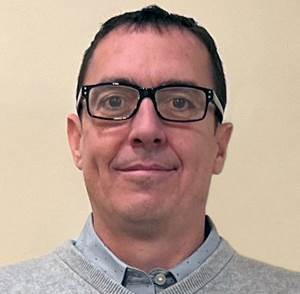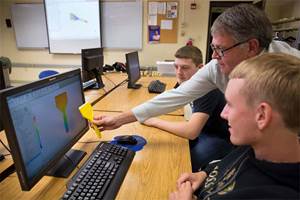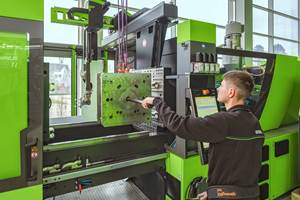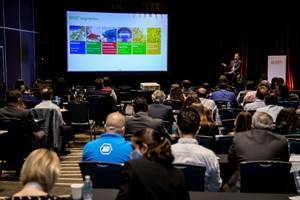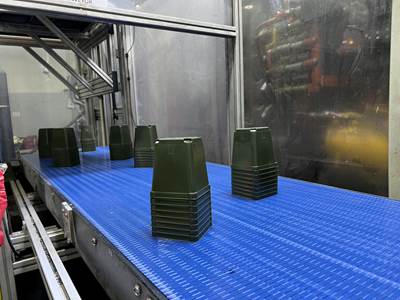SPE Foundation Launches Video Education Program
Intent is to bring easy-to-access plastics educational videos to middle- and high-school students.
The SPE Foundation has rolled out its PlastiVideo program to brings virtual plastics education to middle and high school students worldwide. The educational program includes comprehensive plastics and sustainability topics.
PlastiVideo is an extension of the Foundation’s PlastiVan, an in-classroom, interactive program with hands-on science experiments focused on how plastics enhance the quality of life. The PlastiVan hit the road 25 years ago and, in 2019, the program served more than 24,000 students in schools and at STEM events, visiting 91 cities in 16 U.S. states.
“Before COVID-19, PlastiVan was on track to serve more than 40,000 students in 2020,” said Eve Vitale, SPE Foundation’s chief executive. “Because the pandemic prevented in-classroom learning, we wanted to expand our PlastiVan program by providing teachers more opportunities to introduce the world of plastics to students virtually. And this is where PlastiVideo comes in, providing access to over 20 videos aimed directly at middle and high school students. The ability to access these videos at any time will increase our reach into the growing world of online learning.”
According to Vitale, the goal for PlastiVideo is to reach more students, including those who are home-schooled as well as smaller groups of learners. The National Home Education Research Institute reports for 2021 that there are an estimated 4 million-5 million home-schooled students in grades K-12 in the U.S., up from approximately 2.5 million in the spring of 2019. Due to cost constraints, these students, as well as scouting groups, Boys and Girls Clubs, and other small cohorts have not had access to in-person PlastiVan visits. “We have our first cooperative homeschooling group scheduled to use the PlastiVideo resources this year, and now have a way to offer quality plastics education to most groups,” said Vitale.
All generations benefit from the work and, live with the consequences of decisions and practices of those who came before. The world’s children are living with material consumption and disposal practices that have created huge problems such as the global marine debris crisis. “We have noticed a growing anxiety in some students and want to enable them to become part of the solution,” said Vitale.

PlastiVan’s programming is specifically designed to empower children to be the drivers for change in their homes, schools, and communities when it comes to the consumption and end-of-life decisions about materials. This level of empowerment coupled with accessible and fun science and engineering engagement leads to an interest in the plastics industry. PlastiVan also defines “the plastics industry” for students. Unless there is a plastics professional in a household, students do not even know “it” exists or the number of great career opportunities available.
“The program, whether in-person or through our video series, is focused on increasing the positive perception of plastics,” said Vitale. “We have numerous modules designed specifically on sustainability and it is a theme throughout. Our program includes areas such as: Thermoplastics and Recycling, Bioplastics, Mechanical Recycling, Transformational Recycling, Protecting Your Watershed, Marine Debris, What’s a Circular Economy, Recycle Your Wrap, and Sustainable Materials Management.”
Topical PlastiVideo curriculum is aligned with Next Generation Science Standards and includes chemistry, material and polymer science, engineering, bioplastics, innovations in plastics, plastic applications, careers in plastics, and more – all highlighted in historical context. Teachers get 30-day online access to the program videos for convenient use in their synchronous, asynchronous, or in-person classrooms. A preview of the PlastiVideo program is available on SPE’s YouTube channel.
PlastiVan educators coach classroom teachers on how to use the program to meet educational goals and will be available to attend classes virtually. Open-source interactive materials are available and include critical thinking questions, extensions, projects, vocabulary, and career pathways for each video. Science kits are available so students or teachers who are in class can recreate some of the hands-on learning seen in the videos.
The program was successfully launched in January and has served over 1,000 students in Detroit MI. The PlastiVan educators guide the teacher and students through a curated selection of videos on the school’s virtual learning platform, answer questions, and demonstrate some cool plastics tricks.
Evan Morton, a Michigan State University Senior and Detroit native, became a PlastiVan educator to extend STEM opportunities and learning to children in his community. “I love every second of my time with the PlastiVan program,” said Morton. “The best experience is the expression on children’s faces when they either understand the content or they are confused, but willing to work at understanding, because that means they are processing what is being taught.”
According to Vitale, sponsorships and donations have helped ensure that the PlastiVideo™ program will continue to grow. Sponsors include the SPE Detroit Chapter, the SPE Automotive Division, Plastics Pioneers Association (PPA) and, through Giving Tuesday, additional donations have come in from individuals, other SPE Chapters, Plastics Industry Association members and Foundation sponsors. Braskem, the Foundation’s PlastiVan partner, provides ongoing support.
“Over $110,000 has been furnished by sponsors and stakeholders,” said Vitale. “This funding has helped to alleviate the costs for video production and development. We also will work with any school to find sponsorship – no school will be turned away.”
For more information about the SPE Foundation’s PlastiVideo program go to www.plastivideo.org or to schedule a visit in your community use the request form.
Related Content
Guill Adds Three to Employee Roster
Extrusion tooling maker Guill Tool has recently hired of three new employees.
Read MoreShawnee State University’s Plastics Engineering Program Earns Accreditation
The Accreditation Board for Engineering & Technology certification makes the university’s program one of just four bachelor’s programs in the world with this designation and the only program of its kind in the state of Ohio.
Read MoreMold-Change Time Targeted with Training, Technology
Engel is offering technology and training to molders to help them optimize their mold-changing process.
Read MorePlastics Recycling LATAM Event Reflects Interest in Recycling in Latin America
New conference provides platform for discussion of plastic recycling trends.
Read MoreRead Next
Processor Turns to AI to Help Keep Machines Humming
At captive processor McConkey, a new generation of artificial intelligence models, highlighted by ChatGPT, is helping it wade through the shortage of skilled labor and keep its production lines churning out good parts.
Read MoreHow Polymer Melts in Single-Screw Extruders
Understanding how polymer melts in a single-screw extruder could help you optimize your screw design to eliminate defect-causing solid polymer fragments.
Read MorePeople 4.0 – How to Get Buy-In from Your Staff for Industry 4.0 Systems
Implementing a production monitoring system as the foundation of a ‘smart factory’ is about integrating people with new technology as much as it is about integrating machines and computers. Here are tips from a company that has gone through the process.
Read More







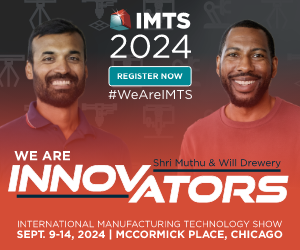









.png;maxWidth=300;quality=90)

